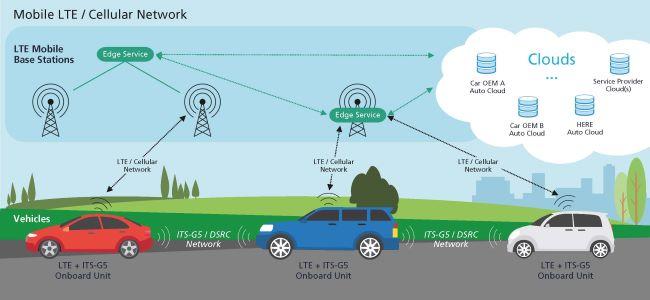Press release
The Global SIM-based mobile network authentication Market is projected to reach a value of USD 5.43 Billion by 2030.
According to the report published by Virtue Market Research The Global SIM-based mobile network authentication Market is estimated to be USD 2.57 Billion in 2024 and is projected to reach a value of USD 5.43 Billion by 2030, growing at a fast CAGR of 13.26% during the forecast period 2025-2030.Request Sample Copy of this Report @https://virtuemarketresearch.com/report/sim-based-mobile-network-authentication-market/request-sample
The SIM-based mobile network authentication market has been steadily gaining momentum due to the growing need for secure mobile communications. A key long-term driver of this market is the increasing prevalence of mobile devices in both personal and professional settings. As smartphones, tablets, and IoT devices become central to daily life, mobile network operators are under growing pressure to ensure that each connection is authenticated securely. This has created a consistent demand for SIM-based authentication solutions that can protect user data, prevent unauthorized access, and maintain network integrity.
The market's growth was further influenced by the COVID-19 pandemic, which accelerated digital adoption across the globe. With more people working remotely, relying on mobile devices for connectivity, and engaging in online transactions, the need for robust mobile authentication mechanisms became more pronounced. Mobile operators had to adapt quickly to ensure network security while accommodating surges in traffic, which highlighted the importance of SIM-based solutions as a trusted method for user verification.
In the short term, one of the strongest market drivers is the rise of mobile banking and digital payment services. Financial institutions and payment platforms are increasingly requiring secure, real-time authentication to prevent fraud and build consumer trust. SIM-based authentication offers a convenient and reliable way to verify users' identities, making it an attractive option for service providers. Alongside this, the market has a notable opportunity in expanding into emerging economies where smartphone adoption is rapidly increasing. Countries in Asia, Africa, and Latin America are witnessing a surge in mobile subscribers, and this growing user base presents significant potential for SIM-based authentication providers to offer scalable solutions that enhance security and trust in mobile networks.
A current trend in the industry is the integration of SIM-based authentication with multi-factor and behavioral authentication systems. Network operators are exploring ways to combine traditional SIM verification with additional layers of security, such as device fingerprinting, biometrics, and AI-driven anomaly detection. This trend allows operators to provide seamless user experiences while ensuring that security standards remain high. It also addresses evolving threats from cybercriminals, who continuously look for ways to exploit mobile networks. By combining multiple verification methods, the industry is moving toward a more holistic approach to mobile security that strengthens trust without compromising convenience. Overall, the market is evolving rapidly, balancing the need for advanced security with user-friendly implementation, and is expected to continue its steady growth as digital connectivity and security demands expand globally.
The interplay of long-term drivers, such as increasing device dependency, and short-term catalysts like digital payment growth, ensures that SIM-based mobile network authentication remains a crucial component of modern mobile ecosystems. The market's ability to capitalize on emerging opportunities in underserved regions and adopt innovative trends in layered security positions it strongly for sustained development. As mobile networks become more complex and cyber threats grow, the reliance on SIM-based authentication solutions will likely intensify, making this market an essential element in the future of secure mobile communications.
Segmentation Analysis:
By Component: SIM Cards, Mobile Devices, Hardware Components, Software Components
The SIM-based mobile network authentication market by component shows a complex structure of interconnected technologies working to strengthen mobile security frameworks. Among these, SIM cards hold the largest share as they form the backbone of authentication systems used by telecom operators worldwide. Their ability to store encrypted identity data makes them an indispensable element in protecting communication channels from intrusions. These cards are deeply embedded in both legacy and modern networks, ensuring seamless user verification without extra effort from consumers. However, as connectivity expands across IoT devices, the fastest-growing segment during the forecast period is software components. Software solutions are rapidly evolving to enable real-time authentication, cloud-based credential management, and remote SIM provisioning. The growing shift toward eSIM and virtual SIM technologies amplifies demand for advanced software frameworks that can manage billions of connected devices efficiently. The rise in digital services, online transactions, and remote work further strengthens this momentum, pushing software components to the forefront of technological innovation in authentication. Together, hardware and software integration continues redefining how security is delivered in mobile ecosystems while keeping the user experience effortless and reliable.
By Application: Voice Authentication, Data Authentication, Messaging Authentication, Online Banking and E-commerce Authentication, IoT Network Authentication
The SIM-based mobile network authentication market by application displays dynamic use cases across multiple communication layers and industries. The largest segment in this category is data authentication, primarily because of the rising need to secure massive volumes of transmitted information across mobile and cloud networks. With the continuous growth in mobile internet usage, enterprises and individuals depend heavily on data integrity and privacy, which SIM-based authentication efficiently upholds. Each data packet transmitted through mobile channels must pass through secure verification processes, making this application the most critical and widespread. On the other hand, the fastest-growing segment during the forecast period is IoT network authentication.
As connected devices multiply across industrial, consumer, and healthcare environments, the need for seamless, low-latency, and scalable authentication is skyrocketing. IoT devices rely on secure identification to communicate safely within complex ecosystems, and SIM-based authentication provides a standardized solution to this growing challenge. With increasing automation, connected cars, and smart city projects, IoT authentication is poised for exponential adoption, supported by telecom operators and technology vendors focusing on embedded security solutions tailored for machine-to-machine communications.
By End-User: Individual Consumers, Small and Medium-sized Enterprises (SMEs), Large Enterprises
The SIM-based mobile network authentication market by end-user demonstrates different security requirements across user groups. Individual consumers represent the largest segment in this category as they account for the highest volume of SIM card usage globally. Every mobile subscriber relies on SIM-based authentication to access networks securely, making individual users the core of this ecosystem. The mass adoption of smartphones, mobile banking, and digital identity services contributes significantly to their dominance. These consumers benefit from automatic and transparent authentication processes that enhance both privacy and convenience. Meanwhile, the fastest-growing segment during the forecast period is small and medium-sized enterprises (SMEs).
As SMEs rapidly digitize their operations, they increasingly adopt mobile-driven business models that demand secure communication and data protection. SIM-based authentication offers them a cost-effective way to ensure safe network access and prevent data breaches. The trend toward remote collaboration, cloud applications, and IoT integration further drives their need for scalable security systems. Large enterprises continue to invest in advanced identity management, yet SMEs' growing awareness and digital expansion push their adoption rate at an accelerating pace, reshaping security priorities across global business ecosystems.
Read More @https://virtuemarketresearch.com/report/sim-based-mobile-network-authentication-market
Regional Analysis:
The SIM-based mobile network authentication market by region reveals contrasting levels of technological adoption and infrastructure readiness. The largest regional market is Asia-Pacific, supported by the vast number of mobile users and expanding telecommunications infrastructure across countries such as China, India, and Japan. Rapid urbanization, the proliferation of low-cost smartphones, and widespread deployment of 4G and 5G networks contribute to this dominance. Telecom operators in the region are continuously upgrading authentication mechanisms to handle immense subscriber bases securely. Additionally, the shift toward eSIM technology and growing IoT networks have accelerated the reliance on SIM-based authentication systems.
In contrast, the fastest-growing region during the forecast period is the Middle East & Africa. This growth is driven by increasing mobile penetration, government initiatives for digital identity programs, and investments in next-generation network infrastructure. Emerging economies in the region are adopting advanced authentication technologies to support financial inclusion and enhance cybersecurity. With rising awareness about secure mobile transactions and expanding digital ecosystems, the region presents untapped opportunities for SIM-based authentication providers to establish strong footprints in upcoming years.
Latest Industry Developments:
• Embracing Partnerships and API-Ecosystem Integration: Increasingly forming partnerships with fintech firms, telecom operators, device OEMs and regulatory bodies to integrate SIM-based authentication through APIs into broader service ecosystems. This trend allows authentication services to be embedded into mobile banking apps, wallets, e-commerce platforms, and even digital government portals, so that SIM verification or SIM swap detection becomes part of the user flow rather than a separate process. By doing so, providers gain access to larger user bases, share responsibility for user trust, and reduce friction in adoption. The API-ecosystem integration strategy is helping firms grow market share by reducing barriers to deployment and fostering stickier usage among enterprise customers who want modular, easily integratable components.
• Investing in Hybrid, Multi-Factor and Behavioral Authentication Layers: A trend in this market is toward combining SIM-based authentication with additional factors like biometrics, device or behavioral analysis, and risk scoring in real time. These hybrid authentication layers help mitigate risks like SIM swap fraud, identity spoofing, and account takeover. Providers are launching solutions that adapt dynamically: for low-risk transactions perhaps SIM-or PIN-based verification is enough, while high-risk ones require biometric or behavior-based checks. This adds complexity, but also increases security and trust from customers, thereby improving competitive positioning.
• Adopting Cloud-Native, Scalable and Privacy-Centric Deployments: Another important strategy is migrating to cloud-native platforms with strong privacy-preserving designs, offering scalable deployment, remote onboarding, and flexible updates. Firms are building modular solutions that support regulatory compliance (e.g. data protection laws), minimized latency, and support for virtual or embedded SIMs. These configurations let authentication providers roll out services globally with quicker time-to-market, while respecting local data residency rules. By emphasising privacy, scalability, and cloud deployment, companies can appeal to both enterprise customers and governments, widening their market share.
customize the Full Report Based on Your Requirements @https://virtuemarketresearch.com/report/sim-based-mobile-network-authentication-market/customization
CONTACT US :
Virtue Market Research
Kumar Plaza, #103, SRPF Rd, Ramtekadi, Pune, Maharashtra 411013, India
E-mail: megha@virtuemarketresearch.com
Phone: +1-917 436 1025
ABOUT US :
"Virtue Market Research stands at the forefront of strategic analysis, empowering businesses to navigate complex market landscapes with precision and confidence. Specializing in both syndicated and bespoke consulting services, we offer in-depth insights into the ever-evolving interplay between global demand and supply dynamics. Leveraging our expertise, businesses can identify emerging opportunities, discern critical trends, and make decisions that pave the way for future success."
This release was published on openPR.
Permanent link to this press release:
Copy
Please set a link in the press area of your homepage to this press release on openPR. openPR disclaims liability for any content contained in this release.
You can edit or delete your press release The Global SIM-based mobile network authentication Market is projected to reach a value of USD 5.43 Billion by 2030. here
News-ID: 4254386 • Views: …
More Releases from Virtue Market Research

The global LDPE Construction Films Market is projected to reach a value of USD 5 …
According to the report published by Virtue Market Research in global LDPE Construction Films Market was estimated to be worth USD 4.73 Billion in 2024 and is projected to reach a value of USD 5.99 Billion by 2030, growing at a fast CAGR of 4.01% during the forecast period 2025-2030.
Request Sample Copy of this Report @https://virtuemarketresearch.com/report/ldpe-construction-films-market/request-sample
The LDPE construction films market has experienced steady growth over the past decade, primarily…

Global Automotive Mobile Edge Computing Market is projected to reach a value of …
Global Automotive Mobile Edge Computing Market was estimated to be worth USD 272.65 Million in 2024 and is projected to reach a value of USD 1171.30 Million by 2030, growing at a CAGR of 27.5% during the forecast period 2025-2030.
Request Sample @ https://virtuemarketresearch.com/report/global-automotive-mobile-edge-computing-market/request-sample
The Automotive Mobile Edge Computing Market is gaining significant momentum as vehicles increasingly rely on advanced connectivity and computing solutions. One of the key long-term drivers of this…

Global Fiber-reinforced Cementitious Composites Market is estimated to reach a v …
According to the report published by Virtue Market Research in Global Fiber-reinforced Cementitious Composites Market was evaluated to be USD 2.67 Billion in 2024 and is estimated to reach a valuation of USD 3.96 Billion by 2030, expanding at a compound annual growth rate (CAGR) of 6.8% during the forecast period 2025-2030.
Request Sample Copy of this Report @ https://virtuemarketresearch.com/report/global-fiber-reinforced-cementitious-composites-market/request-sample
Fiber-reinforced cementitious composites are gaining strong attention in construction and infrastructure sectors…

Global AI in Molecular Imaging Market is projected to reach a value of USD 1643. …
Global AI in Molecular Imaging Market was estimated to be worth USD 203.25 Million in 2024 and is projected to reach a value of USD 1643.85 Million by 2030, growing at a CAGR of 34.8% during the forecast period 2025-2030.
Request Sample @ https://virtuemarketresearch.com/report/ai-in-molecular-imaging-market/request-sample
Artificial intelligence is changing the way doctors and researchers see inside the human body. In molecular imaging, AI helps to spot diseases earlier and more accurately than before.…
More Releases for SIM
Embedded SIM IC Market
Embedded SIM IC Market Overview
Embedded SIM chip refers to embedding the SIM card into the device and updating its configuration through wireless remote download. Compared with the traditional pluggable SIM card, the embedded SIM card greatly reduces the card space on the device, and its volume is reduced to 10% of the traditional SIM card. In addition, it is directly embedded in the device in form, realizing the card-free nature…
E SIM Card Embedded SIM Market share, Market trends, and forecasts from 2024 to …
Market Overview and Report Coverage
An eSIM, also known as an embedded SIM card, is a small chip that is built into mobile devices, allowing users to switch between different cellular networks without needing to physically swap out a physical SIM card. The eSIM card market is experiencing steady growth, with advancements in technology and increasing adoption of eSIM-enabled devices driving market expansion.
The eSIM card market is expected to…
E-SIM Card (Embedded SIM) Market Size, Share, Growth & Trends, Analysis by 2029
This comprehensive report thoroughly assesses various regions, estimating the volume of the global E-SIM Card (Embedded SIM) market within each region during the projected timeframe. The report is meticulously crafted and includes valuable information on the current market status, historical data, and projected outlook. Furthermore, it presents a detailed market analysis, segmenting it based on regions, types, and applications. The report closely monitors key trends that play a crucial role…
E-Sim Market
According to the Market Statsville Group, the global e-sim market size is expected to grow from USD 702.2 million in 2021 to USD 6673.8 million by 2030, at a CAGR of 32.5% from 2022 to 2030. Embedded Subscriber Identity Module (eSIM) or Embedded Universal Integrated Circuit Card (eUICC) is a reprogrammable chip that can be soldered or removed. It's a small chip that the user uses to verify their identity…
MRRSE : Current Market Scenario of E-SIM Card Market |Key Players - Apple Inc., …
An insightful study, titled “E-SIM Card Market” has been freshly broadcasted to the vast research repository of Market Research Reports Search Engine (MRRSE). The research study provides detailed comprehensions and forecasts future growth of the global market with an in-depth study of the factors impacting revenue growth throughout the mentioned forecast period. Further, a deep analysis on the major players from diverse regions is also present in the report.
Get Report…
E-SIM Card Market |Key Players - Apple Inc., Samsung, Gemalto NV, Giesecke & Dev …
An insightful study, titled “E-SIM Card Market” has been freshly broadcasted to the vast research repository of Market Research Reports Search Engine (MRRSE). The research study provides detailed comprehensions and forecasts future growth of the global market with an in-depth study of the factors impacting revenue growth throughout the mentioned forecast period. Further, a deep analysis on the major players from diverse regions is also present in the report.
Get Free…